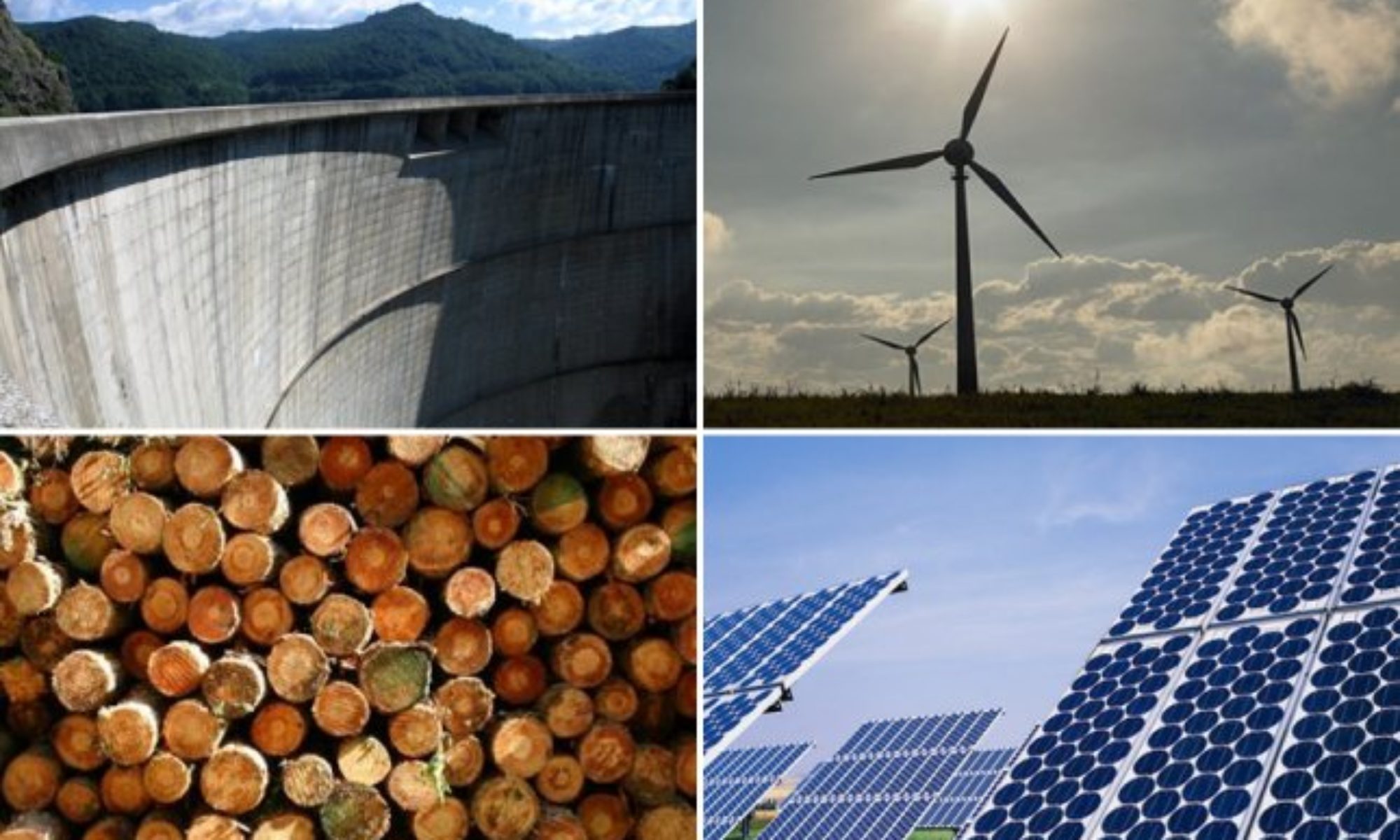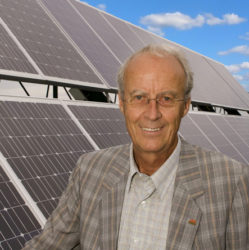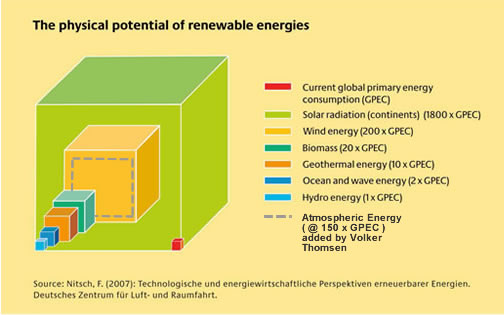Open Letter from The Nordic FolkeCenter for Renewable Energy
Denmark, June 2009
Declaration on the formation of IRENA
We, as long-term supporters of renewable energy and representatives of prominent organisations working in this field bring the following letter to the attention of the delegates from IRENA signatory countries, by paying full respect to all the delegate’s forthcoming decisions at the second meeting of the Preparatory Commission in Egypt on June 29 and 30 2009.
We recommend that Dr. Hermann Scheer be appointed Founding Chair for the formation period of IRENA to directly support the Director General.
It must be acknowledged that the breakthrough represented by the establishment of IRENA can be in great part credited to the work of Dr. Hermann Scheer. Together with the two non-profit international organisations under his leadership, EUROSOLAR and World Council for Renewable Energy (WCRE), he has struggled for two decades to achieve the founding of IRENA. Dr. Scheer pioneered the concept that shapes IRENA today. Numerous obstacles on the long way to IRENA have been overcome through his outstanding international leadership for the advancement of renewable energies. He first lobbied for the idea to establish an IRENA on many international conferences and succeeded in initiating the decisions that were crucial to obtain the support of Germany for launching IRENA at the government level. All these facts clearly indicate that IRENA is connected inextricably with Dr. Scheer’s vision and work.
Furthermore, through his seminal books on renewable energy strategies, his ability to empower people and to form strong alliances, and as a successful legislator for renewable energy policies in his native country he has inspired a generation of decision makers, politicians, parliaments, and organisations, as well as concerned individuals, about the imperative necessity of implementing a new energy paradigm for the service of humankind.
The German government refrained from nominating Dr. Scheer for the post of IRENA’s Director General because it decided to concentrate all of its efforts to ensure that Bonn becomes the headquarters of IRENA. This decision happened with the consent of Hermann Scheer who supported Bonn as seat for IRENA from the early beginning.
The broad acceptance of IRENA proves that the agency is directly linked to a worldwide hope to overcome the inherent dangers and shortcomings associated with the use of nuclear power and fossil fuels. Renewable energies offer unique opportunities to achieve a secure and independent energy supply that does not harm the environment, the climate and human health. Only renewable sources can reliably satisfy the increasing energy demand of a growing world population and their energy needs. Achieving the full potential of renewable sources swiftly and comprehensively is the central challenge of the 21st century and represents a unique chance for humanity to thrive and prosper.
Therefore, we consider the formation of IRENA unthinkable without Dr. Scheer’s essential contributions and firmly believe that he should be directly involved in the early leadership of IRENA to help ensure its success.
IRENA must act as a straightforward international advocate for renewable energy. As an international governmental organisation, IRENA has the opportunity and responsibility to champion the use of renewable sources everywhere, without interference into the legislative competence of governments.
IRENA must inspire the adoption of effective policies and best-practice solutions that accelerate and reinforce the rapid introduction of all renewable energy options. IRENA must proactively commit governments and the public to become aware of the advantages of adopting a new and sustainable energy future for all nations, with special attention to the needs of developing countries, which can be satisfied through the multiple economic and societal benefits related to the adoption of renewable energy strategies.
We therefore urge the signatories of IRENA who will come together for the decisions at the next meeting of IRENA in Egypt to harness Hermann Scheer’s talents and potential by entrusting him with the extraordinary role of Founding Chair to thereby directly support IRENA’s Director General.
We all have experienced his inspiration and achievements that are firmly based on his comprehensive view of the obstacles, practical solutions, and opportunities related to renewable energy. Therefore, we are convinced that his involvement is indispensable to ensure the success of IRENA’s work.
First signatories:
Franz Alt
Journalist, writer, guest lecturer, Germany
Prof. Mustapha Ayaita
Chair, MENA Institute University Kassel, Morocco
Heinrich Bartelt
Treasurer, World Wind Energy Association
Marianne Bender
Chair, OVE, Danish Renewable Energy Organisation
Jens-Peter Bonde
Former Member of the European Parliament, Denmark
Prof. Godfrey Boyle
Director, Energy & Environment Research Unit, Open Univ. Milton Keynes, UK
Lester Brown
President, Earth Policy Institute, USA
Prof. Federico Butera
Head, Research Unit Energy and Buildings, University Milan, Italy
Prof. Luciana Castellina
Former Member of the European Parliament, Italy
Ole Vagn Christensen
Member of the Danish Parliament, Social Democratic Party
Roberto Cogliati Dezza
President, Lega Ambiente, Italy
Peter Danielsson
Board member, SERO, National Organisation of Sweden’s Energy Associations
Prof. Peter Droege
University of Liechtenstein, Professor of Architecture and Urban Planning
Michael Eckhart
President, American Council on Renewable Energy (ACORE)
Dr. José Etcheverry
President, Canadian Renewable Energy Alliance
Hans-Josef Fell
Member of the German Parliament, Green Group
Anders Fisker
Copenhagen Goodwill Ambassador, Danish Canadian Chamber of Commerce
Dr. Dörte Fouquet
Director, European Renewable Energies Federation
Paul Gipe
Author, advocate, renewable energy industry analyst, USA
Prof. Herbert Girardet
Co-Founder and Director of Programmes, World Future Council
Stefan Gsänger
Secretary General, World Wind Energy Association
Wolfgang Hein
Former Head of Division, Energy and Environment Affairs, Austrian Chancellery
Prof. Dieter Holm
President, ISES (International Solar Energy Society) Africa
Christine Hornstein
Executive Director, ISES (International Solar Energy Society)
Prof. Frede Hvelplund
Department of Development and Planning, Aalborg University, Denmark
Bianca Jagger
President, World Future Council
Dr. Anil Kane
President, World Wind Energy Association
Robert F. Kennedy Jr.
International Environmental Advocate, USA
Ruth N. Kiwanuka
CEO, Joint Energy and Environment Projects, Uganda
Klaus Knecht
Chair, Renewable Energy Capacity Building Program INWENT, Germany
Stefan Kohler
CEO, German Energy Agency
Andriy Konechenkov
Chairman, Ukrainian Wind Energy Association
Dr. Hans Kronberger
Former Member of the European Parliament, Austria
Jane Kruse
Program Leader, World Wind Energy Institute
Jeremy Leggett
Founder and Executive Chairman, Solar Century, UK
Zhouqing Li
President TISET, Beijing, China
Prof. Wu Libin
Secretary of Foreign Affairs, BIOMA / BRTC / China Biogas Society (CBS)
Amory B. Lovins
Chairman, Rocky Mountain Institute, USA
Preben Maegaard
Director, Nordic Folkecenter for Renewable Energy, Denmark
Ulla Meixner
Chair, Financial Advisory Committee German Wind Energy Association
Prof. Niels I. Meyer
Emeritus Professor of Physics, Technical University of Denmark
Christine Milne
Senator, Australian Greens Deputy Leader, Spokesperson on Climate Change
Prof. Masataka Murahara
Tokyo Institute of Technology, Japan
Raymond Myles
Secretary General cum Chief Executive INSEDA, India
Hermann Oelsner
President, African Wind Energy Association
Leoluca Orlando
Member of the Italian Parliament, Former Mayor of Palermo, Italy
Prof. Galal Osman
President, Egyptian Wind Energy Association
Ahmedou Ould-Abdallah
Special Representative of the UN Secretary -General in West Africa
Mauro Passos
President, Instituto IDEAL, Brazil
Prof. Josep Puig
Autonomous University of Barcelona, Spain
Ermete Realacci
Member of the Italian Parliament, Honorary President, Lega Ambiente, Italy
Dr. Rudolf Rechsteiner
Member of the National Council, Switzerland
Harald N. Roestvik
Solar Pioneer, www.sunlab.no, Norway
Mechtild Rothe
Vice President European Parliament, President EUFORES
Prof. Takeo S. Saitoh
Ex-President, Japan Solar Energy Society
Ganesh Ram Shrestha
Director, Centre for Rural Technology, Nepal
Prof. Lumin Shrestha
Centre for Rural Technology, Nepal
Prof. Erico Spinadel
President, Argentinian Wind Energy Association
IIDA Tetsunari
Executive Director, Institute for Sustainable Energy Policies, Japan
Volker Thomsen
President Ret., St. Lawrence College Kingston, Canada
Dr. Ibrahim Togola
Director, Mali Folkecenter for Renewable Energy
Jakob von Uexkull
Founder, World Future Council
Izumi Ushiyama
President, Ashikaga Institute of Technology, Japan
Prof. Tanay Sidki Uyar
Vice President, World Wind Energy Association
Dr. Gu Weidong
Chief Scientist, Wind Power Project, National Basic Research Program, China
Prof. E.U. von Weizsäcker
Former President, Wuppertal Institute, Germany
Moneef R. Zou’bi
Director General, Islamic World Academy of Sciences (IAS)


